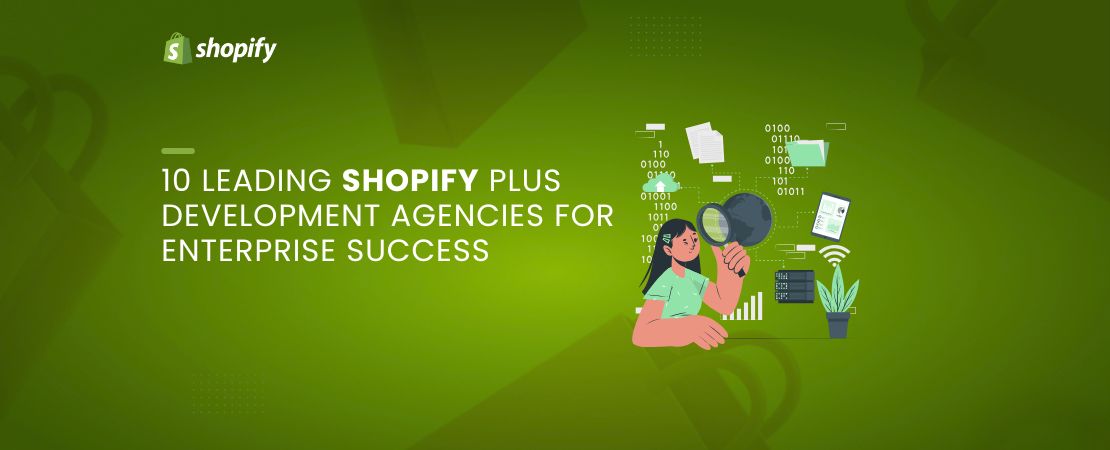Choosing the wrong enterprise ecommerce platform can cost your business millions in lost revenue and operational inefficiencies. Adobe Commerce and Shopify Plus dominate the enterprise market, yet they serve fundamentally different business models and growth strategies.
This guide cuts through the marketing noise to examine the actual capabilities, costs, and trade-offs between these two platforms. Whether you’re migrating from a legacy system or scaling your current operations, understanding which platform aligns with your technical resources and business objectives will determine your success over the next five years.
Summary
- Pricing: Shopify Plus offers transparent flat-rate pricing starting at $2,500/month, while Adobe Commerce requires custom quotes and additional hosting costs
- Ease of Use: Shopify Plus provides a fully hosted SaaS solution with minimal technical requirements, whereas Adobe Commerce demands significant developer resources
- Customization: Adobe Commerce delivers unlimited backend control through open-source architecture, while Shopify Plus balances customization with simplicity
- B2B Capabilities: Both platforms now offer robust B2B features, though Adobe Commerce maintains an edge in complex wholesale workflows
- Total Cost: Shopify Plus typically costs $60,000-$200,000 annually versus Adobe Commerce’s $150,000-$500,000+ range when factoring implementation and maintenance
Understanding the Platforms: Core Differences
Shopify Plus operates as a fully hosted Software-as-a-Service platform. The company manages your infrastructure, security updates, and server performance. You sign up, build your store, and focus on selling.
Adobe Commerce functions as an open-source platform requiring self-hosting or cloud deployment. You control every aspect of your infrastructure, from server configuration to security patches.
This architectural distinction directly impacts team requirements, ongoing costs, and customization capabilities. Businesses with lean technical teams typically favor Shopify Plus, while enterprises with dedicated development resources leverage Adobe Commerce’s flexibility.
| Platform Feature | Adobe Commerce | Shopify Plus |
| Hosting Model | Self-hosted or cloud | Fully hosted SaaS |
| Setup Complexity | Requires technical expertise | Straightforward setup |
| Code Access | Full source code access | Limited code customization |
| Infrastructure Control | Complete control | Managed by Shopify |
Pricing and Total Cost of Ownership
Understanding the true cost extends far beyond the monthly license fee.
Shopify Plus Costs
Shopify Plus charges a flat $2,500 per month for stores processing up to $800,000 in monthly sales. Beyond this threshold, pricing shifts to 0.25% of revenue.
Annual licensing typically ranges from $60,000 to $200,000 depending on sales volume. This fee includes hosting, security, PCI compliance, and platform updates. Initial build costs usually fall between $100,000 and $500,000, with ongoing development averaging $36,000 to $120,000 annually.
Adobe Commerce Costs
Adobe Commerce pricing starts at approximately $30,000 annually for smaller implementations but scales dramatically based on your Gross Merchandise Value and store count. Large enterprises commonly pay $100,000+ annually just for licensing.
Implementation costs present the biggest shock. A basic Adobe Commerce build starts around $150,000, with complex implementations reaching several million dollars for global enterprises.
Ongoing costs remain substantial with support retainers running $5,000 to $50,000 monthly, plus regular development work adding another $5,000 to $50,000 monthly.
Most Adobe Commerce implementations cost $200,000 to $500,000+ annually versus Shopify Plus’s $100,000 to $300,000 range for similar-sized businesses.
The Adobe Commerce vs Shopify Plus cost comparison becomes clear when examining total ownership rather than just licensing fees.
Implementation and Time to Market
Shopify Plus Implementation
Shopify Plus stores typically launch in 8 to 16 weeks for standard implementations. The platform’s SaaS architecture eliminates infrastructure setup, letting your team focus on design, content, and integrations.
The straightforward process to launch a Shopify store involves selecting a theme, customizing design, importing products, configuring payment processors, and connecting necessary tools.
Adobe Commerce Implementation
Adobe Commerce implementations demand 6 to 12 months minimum. Complex projects with multiple storefronts and extensive customizations often take 18 to 24 months. Time investment stems from infrastructure setup, custom development, testing, and integration requirements.
Businesses must secure hosting, configure servers, install the platform, develop themes, build integrations, migrate data, and conduct extensive testing before launch.
| Implementation Phase | Shopify Plus | Adobe Commerce |
| Average Timeline | 8-16 weeks | 6-12 months |
| Infrastructure Setup | None required | 2-4 weeks |
| Theme Development | 4-8 weeks | 8-16 weeks |
| Testing and QA | 2-3 weeks | 4-8 weeks |
Customization and Flexibility
Shopify Plus Customization
Shopify Plus provides solid customization within its framework. Merchants can modify themes using Liquid templating language, extend functionality through apps, and customize checkout flows. The platform’s API enables integration with external systems.
However, limitations exist. Backend logic remains largely fixed, and certain workflow modifications require workarounds. These constraints become features for many businesses, ensuring stability and preventing performance issues.
Adobe Commerce Customization
Adobe Commerce delivers near-unlimited customization through complete source code access. Developers can modify any platform component, create entirely custom workflows, and integrate deeply with any system.
This flexibility serves businesses with complex requirements: manufacturers needing custom pricing matrices, B2B sellers requiring approval workflows, and companies with highly specialized operational processes.
The tradeoff comes in maintenance complexity. Heavy customization creates technical debt and makes platform updates difficult.
Ecommerce Features and Capabilities
Product Management
Shopify Plus supports unlimited products with variants limited to 2,000 per product. Product organization uses collections with automated rules that dynamically populate based on product attributes.
Adobe Commerce provides six native product types (simple, configurable, grouped, bundled, virtual, downloadable) with unlimited variations. The platform excels at complex product relationships and can manage any catalog complexity without apps.
Inventory Management
Shopify Plus introduced Smart Order Routing in 2023, tracking inventory across multiple locations and automatically routing orders to optimal fulfillment centers based on proximity and stock levels.
Adobe Commerce’s Multi-Source Inventory (MSI) provides similar capabilities with slightly more granular control. The system assigns products to different warehouses and tracks stock across locations in real-time.
B2B Functionality
Shopify Plus launched comprehensive B2B features in 2024, including company accounts, custom pricing and catalogs, purchase order workflows, and B2B-specific payment terms. However, certain advanced features still require apps: request-for-quote, company credit management, and requisition lists.
Adobe Commerce B2B remains more mature with native support for sophisticated quote management, company credit lines, requisition lists, and multi-level approval workflows.
| B2B Feature | Shopify Plus | Adobe Commerce |
| Company Accounts | Native | Native |
| Custom Pricing | Native | Native |
| Request for Quote | App required | Native |
| Company Credit | App required | Native |
Integrations and Ecosystem
Shopify Plus Ecosystem
Shopify’s app store contains over 8,000 applications covering virtually every ecommerce need. The platform’s robust APIs enable custom integrations with ERPs like NetSuite, marketing platforms including Klaviyo, and custom internal systems. Shopify Plus merchants can access Shopify Flow for no-code automation of repetitive tasks.
Most integration challenges stem from properly scoping requirements rather than platform limitations. The ecosystem comparison between platforms shows established solutions exist for most business needs.
Adobe Commerce Ecosystem
Adobe Commerce’s marketplace offers fewer pre-built apps with approximately 3,800 extensions. However, the platform’s open-source nature enables unlimited custom integration possibilities. Developers can build anything from scratch without platform restrictions.
Integration with Adobe Experience Cloud products provides powerful marketing and analytics capabilities for enterprises already invested in Adobe’s ecosystem. The trade-off comes in integration complexity and cost.
Marketing and SEO Capabilities
Shopify Plus Marketing
Shopify Plus provides solid SEO fundamentals: customizable meta titles and descriptions, auto-generated sitemaps, built-in SSL certificates, and mobile-optimized themes. Marketing features include discount codes, gift cards, and email capture tools.
The platform’s limitations include rigid URL structures and limited native promotional tools. Most businesses work around these through apps.
Adobe Commerce Marketing
Adobe Commerce excels in SEO flexibility with custom URL structures, advanced metadata management, and schema markup implementation. The promotional engine supports complex pricing rules, tiered discounts, and scheduled promotions.
When integrated with Adobe Experience Cloud, the platform delivers enterprise-level personalization and AI-powered product recommendations.
Security and Compliance
Shopify Plus Security
Shopify Plus handles security comprehensively through Level 1 PCI DSS compliance by default, automatic SSL certificates, regular security updates, and built-in fraud analysis tools. Merchants need not worry about security infrastructure or compliance audits.
Adobe Commerce Security
Adobe Commerce provides security tools, but implementation responsibility falls on merchants or hosting providers. Businesses must manage PCI compliance, install security patches, configure firewalls, and maintain secure hosting infrastructure.
The Adobe Commerce Cloud version improves this through managed security, though businesses still require technical oversight.
Support and Community
Shopify Plus Support
Every Shopify Plus merchant receives 24/7 priority support through phone, email, and live chat. Additionally, merchants get assigned a dedicated Launch Manager who provides strategic guidance and technical assistance.
The extensive knowledge base and active community forums create multiple support avenues.
Adobe Commerce Support
Adobe Commerce offers application-level support for cloud customers, though phone support isn’t universally available. Most support requests go through tickets.
The platform benefits from a knowledgeable developer community, though businesses typically rely on their implementation partner or internal development team for complex issues.
Key Takeaways
- Choose Shopify Plus if: You need rapid deployment, have limited technical resources, want predictable costs, require excellent support, or prioritize ease of use over unlimited customization
- Choose Adobe Commerce if: You need extreme customization, have dedicated development teams, require complex B2B workflows, want complete infrastructure control, or operate within Adobe’s ecosystem
- Implementation Speed: Shopify Plus launches in 8-16 weeks versus Adobe Commerce’s 6-12 months minimum
- Cost Advantage: Shopify Plus typically costs $100,000-$300,000 annually versus Adobe Commerce’s $200,000-$500,000+ range
- Customization Trade-offs: Adobe Commerce provides unlimited flexibility at the cost of complexity, while Shopify Plus balances customization with stability
Which Platform Is Right for Your Business?
The Adobe Commerce vs Shopify Plus decision depends on your business priorities, technical capabilities, and growth trajectory.
Most mid-market brands benefit from Shopify Plus. The platform provides enterprise-grade features without enterprise-level complexity, allowing you to focus resources on growth rather than platform management.
Adobe Commerce makes sense for: ultra-complex product configurations, highly specialized B2B workflows, businesses deeply integrated with Adobe’s ecosystem, or companies where platform customization provides genuine competitive advantage.
Ready to make your platform decision? Contact our ecommerce experts to discuss your requirements and get personalized platform recommendations.
FAQs
What Is the Main Difference Between Adobe Commerce vs Shopify Plus?
Shopify Plus is a fully hosted SaaS where Shopify manages all infrastructure. Adobe Commerce is open-source, requiring self-hosting and complete infrastructure management.
Is Adobe Commerce Better Than Shopify Plus for B2B?
Adobe Commerce leads in complex B2B scenarios with native quote management, requisition lists, and multi-level approvals. Shopify Plus handles standard B2B needs but requires apps for advanced features.
How Much Does It Cost to Migrate From Adobe Commerce to Shopify Plus?
Migration costs range from $150,000 to $500,000, depending on store complexity, data volume, customizations, and integrations.
Which Platform Offers Better SEO Capabilities?
Adobe Commerce provides custom URL structures and advanced metadata control. Shopify Plus delivers strong SEO fundamentals sufficient for most businesses.
Can Shopify Plus Handle Enterprise-Level Traffic and Sales Volume?
Yes. Shopify Plus processes thousands of orders per minute with automatic scaling and 99.99% uptime. Major brands with billions in GMV use it successfully.
What Technical Expertise Is Required for Each Platform?
Shopify Plus needs minimal technical expertise—marketing teams can manage stores. Adobe Commerce requires dedicated developers for implementation and ongoing maintenance.



